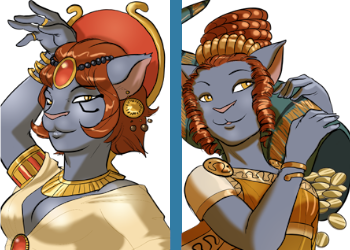Screw W5H (who, what, where, when, why, and how), so far as I’m concerned the only one that matters is WHY.
One of my biggest pet peeves is finishing a book and wondering about something the author left dangling. As an author, I understand there are things you can’t put in the book no matter how much you want to. Constraints of story flow and info overload render a lot of info the author has useless, especially us world-builders. Sure it’s a great tidbit but, unless you’re JRR Tolkien, no one will sit thru a dissertation about the Shire when it doesn’t influence the plot or relationship.
However, there are times in Romance when plot is sacrificed so the hero and heroine can get to happily ever after a little bit faster (or a sex scene). Whether by mistake or on purpose, some authors leave certain things hanging and the reader is left asking “why?”.
Whenever someone asks me about writing advice, I say the same thing — ask “why?”. Keep asking why until you know everything there is to know about the main characters and their story. It may not make it to the book, but at least you know. A better understanding of one’s characters isn’t a bad thing. Look at JK Rowling (yes, yes, she didn’t write romance). She knew the names of every student in Harry’s class. That info never made it to the books, but she had it just in case, along with a whole host of other info.
Asking why forces you, the author, to flesh out characters and plots. If the heroine dyes her hair purple, why? Does she like the color? Is she making a statement? Is her favorite sports team playing and she has tickets to the game? Did she lose a bet? When she shows up to work on Monday with purple hair, despite trying to wash out the color that swore it was temporary, and her boss/love interest asks her about it, an answer is appreciated. Even if the heroine dodges and doesn’t answer aloud, inner monologue would convey the answer to the reader and why she didn’t want to tell the person the reason.
Personally, I’m the type of writer who leaves a lot of explanation to the very end. That’s an influence I picked up from anime. You wanna know the answer, you gotta stick with me to the end. But, things will get answered.
Why do I leave to the end?
– It builds suspense and/or anticipation.
Why build suspense and/or anticipation?
– To keep the reader turning the pages.
Why keep the reader turning the pages?
– So they’ll read the whole book.
Why do you want them to read the whole book?
– So they can find out WHY.
Why did they fall in love? Why were they being chased? Why is he tortured? Why is she weepy? Why did the car not start when he just got a tune up the day before? Why ask why?
Because, ending a story with unresolved issues (whether they be plot or relationship) makes for unhappy readers and unhappy readers don’t return.
Next Weeks Topic: I/R Movies (a list ’cause I’m getting lazy)

Ok… you mentioned the two main characters and that got me thinking. The novel I’m currently working on has 17 characters with speaking parts and another dozen background characters. Of the speaking characters, there are at least a dozen that are critical to the story. My brief character outlines alone are five pages long.
My question is this: How and Why do you keep it down to just two?
Stan,
Wow. 17. Is this a romance novel? The most I’ll ever have to contend with is five main characters (menages are fun for all).
I mentioned two since that’s usually the norm for romance. I’ll change it and take the “two” out. Teehee
Thanks for the link from your Bebo! I seem to spend forever thinking about my characters and what makes them tick, but this has summed it up in a nutshell and is a huge help for enabling my characters to develop. :o)
Hey Susan,
I knew I linked on Bebo for a reason. 🙂 I’m glad I helped you out.